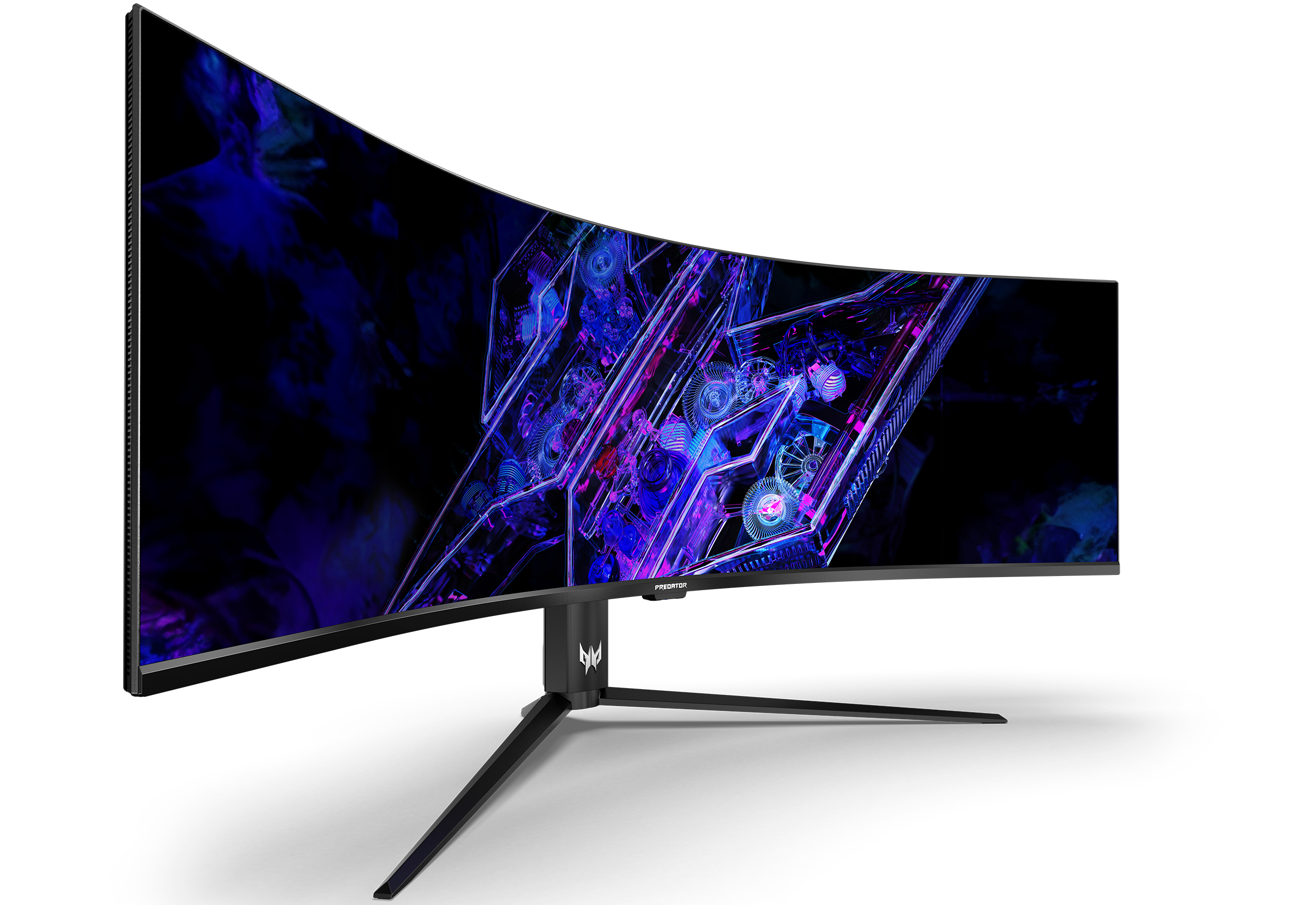
We're gonna need a bigger desk.
The market for super ultrawide monitors just got a bit more interesting, as Acer is preparing to release its colossal Predator Z57 gaming monitor for a hefty, but not all that unreasonable $1,999 at its online store in the US.
The Acer Predator Z57 ticks a lot of boxes. It’s a 57-inch 32:9 DUHD offering, with whopping 7680×2160 resolution, 2,304 zone MiniLED backlighting, HDR 1000 and 98% coverage of the DCI-P3 color space. It’s also got a built-in KVM switch.
It uses a VA panel, with a 120Hz refresh rate and a 1000R curvature. The refresh rate isn’t outstanding, but remember we’re talking about a dual-4K affair here. Good luck hitting 120 fps in modern demanding titles at that resolution, even with a top tier RTX 4090.
Along with the aforementioned KVM switch, the connectivity options are decent, though the lack of DisplayPort 2.1 support is a notable exception. You get twin HDMI 2.1 ports, DP 1.4 and four USB 10GB/s downstream ports, one of which is type-C, with 90W power delivery support. 10W speakers are also included.
(Image credit: Future)
Best gaming monitor: Pixel-perfect panels for your PC.
Best high refresh rate monitor: Screaming quick.
Best 4K monitor for gaming: When only high-res will do.
Best 4K TV for gaming: Big-screen 4K gaming.
While I would happily own such a beast of a monitor, I would need a desk, room, and probably house upgrade to accommodate it. It would make a good option for a sim racing rig, but also as an all-round general purpose monitor. As someone with a single generic 4K monitor for work-from-home use, I still find myself running into limitations when I’ve got a few browser tabs, a spreadsheet, Slack chat and email client open at the same time. This would solve that—and then some.
Is the Predator Z57 a contender for our list of best gaming monitors? It’s got to contend with the excellent Samsung Odyssey Neo G9 G95NC. However, the Sammy will set you back $2,499, which is $500 more than the Predator Z57, so Acer’s challenger has an advantage in that regard.
It’s also going up against some awesome 49-inch OLED options, though they don’t have the sheer pixel density of the Z57. OLED monitors do have inherently appealing characteristics, but if you’re after a spectacle of pixel overabundance, the Z57 should be worth a look. No doubt we’ll get our eager mitts on one for a review soon.






